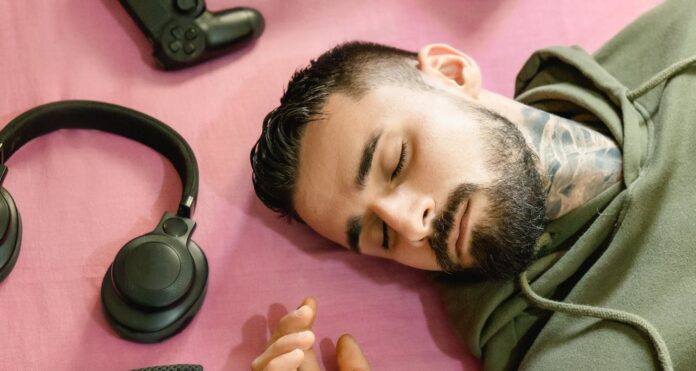Does your partner complain that you snore at night? Do you wake up feeling tired and irritable? If so, you may be suffering from sleep apnea. This means that while you sleep, you stop breathing for several seconds or even a minute. To find effective relief from this condition, the following article can help.
If you have moderate to severe sleep apnea, lose some weight. Being over-weight or obese can affect your breathing severely and can cause many health problems, including sleep apnea. Those individuals who lost at least twenty to twenty-five excess pounds saw a marked improvement in respiratory issues related to sleep apnea.
Try your best to lay off tobacco and nicotine products. Cigarette smoke can irritate your upper airway causing it to swell up, subsequently hindering your ability to breath during the night. Quitting smoking could therefore, significantly improve your sleep apnea symptoms and will also improve your body’s overall health and your feelings of well-being.
Consider elevating the head of your bed if you suffer from sleep apnea. As you sleep, gravity is constantly pulling on your muscles and causing your airway to close. If you elevate the head of your bed a bit, the slight incline makes it easier for your body to maintain your airway when you are sleeping.
If you have just been diagnosed with sleep apnea and prescribed a CPAP, join a CPAP support group. It can be quite difficult to get used to sleeping with a mask on your face every night. Sitting in a room full of other people going through the same thing can be very empowering. You can learn from others who have had the same issues you are having and made adjustments to make it work.
Make sure to provide relief for your allergies. Congestion can make it harder to breathe through your nose and force you to take in air through your mouth. Allergies can cause soft tissues to swell and make apnea much more severe. Research the medicines you use to treat your symptoms and be wary of adding side effects to the mix.
Sleep apnea has the potential for being a very serious disorder. Be aware of the symptoms of sleep apnea and consult your doctor if you are concerned. A doctor can refer you to a sleep lab if the doctor believes you have sleep apnea, and you can then get on the road to recovery if you have it.
Try yourself to sleep on your side. If you fall asleep on your back, gravity can make it easier for your tongue and/or tonsils to fall back into your throat and obstruct your windpipe, causing apnea episodes. While it may be hard a first, as time passes, however, it will start to become second nature to sleep on your side.
Avoid drinking alcohol. Getting buzzed or drunk causes your airways to relax too much. If someone goes to sleep in a drunk state, you can hear the effects from their deep snoring. In someone who already suffers from sleep apnea, it can be very dangerous. Avoid alcoholic drinks to sleep safer.
If you are a smoker, this may be making your sleep apnea more severe. When you smoke a cigarette, the airways in your nose become swollen, restricting the amount of air that you can breathe. Quit smoking if you can. If you can’t give it up entirely, don’t smoke in the evenings before bed.
Don’t drink too much if you have sleep apnea. Snoring and airway blockages are made worse by over-relaxed throat muscles, and this is something that heavy drinking can cause. Quit drinking, or have only one drink a few hours before bed. Doing this will prevent alcohol from disturbing your sleeping hours.
If you use a CPAP machine and suffer from dry mouth as a result, there are two solutions. First, try increasing the humidity of your system. If that doesn’t work, you can also try a chin strap. One or both of these solutions can prevent the air leakage that causes dry mouth.
You should adopt a healthy lifestyle and monitor your weight and blood pressure. Your doctor should be able to advise you on your diet and perhaps on a fitness program if you need to be more active. Living a healthy life should really help you reduce the symptoms of sleep apnea.
Quit smoking. Not only is it a good idea to quit smoking for your health in general, but it will also help with your sleep apnea. Smoking affects your lungs and respiratory system, causing your airways to swell and exacerbating your sleep apnea. By quitting, you allow your airways to return to normal and as an added bonus, you’ll also save a ton of money!
Sleep apnea causes anxiety, so if you feel that way before bed, take a bath. Taking a hot bath can relieve the tension in your muscles. Therefore, you can sleep better without waking up because of apnea symptoms.
Clear your nasal passages before you go to sleep to avoid apnea. Open them up by using some saline spray, nasal dilator or a neti pot. Clearing the nasal passages will allow you to breathe easier while you are sleeping. Do not forget to use distilled water when you use a neti pot.
Without a doubt, one major contributor to the level of severity of sleep apnea is weight. If you find yourself to be a few pounds overweight it may be time to hit the gym. Studies have shown losing weight has drastically reduced, and sometimes altogether gotten rid of the symptoms of sleep apnea.
Once you are diagnosed with sleep apnea, it is important to pursue an effective treatment plan right away. This way, you and your family can find relief from the problems this condition can cause. Once you have been treated, you will find yourself sleeping better at night and feeling more lively and energetic during the day.



